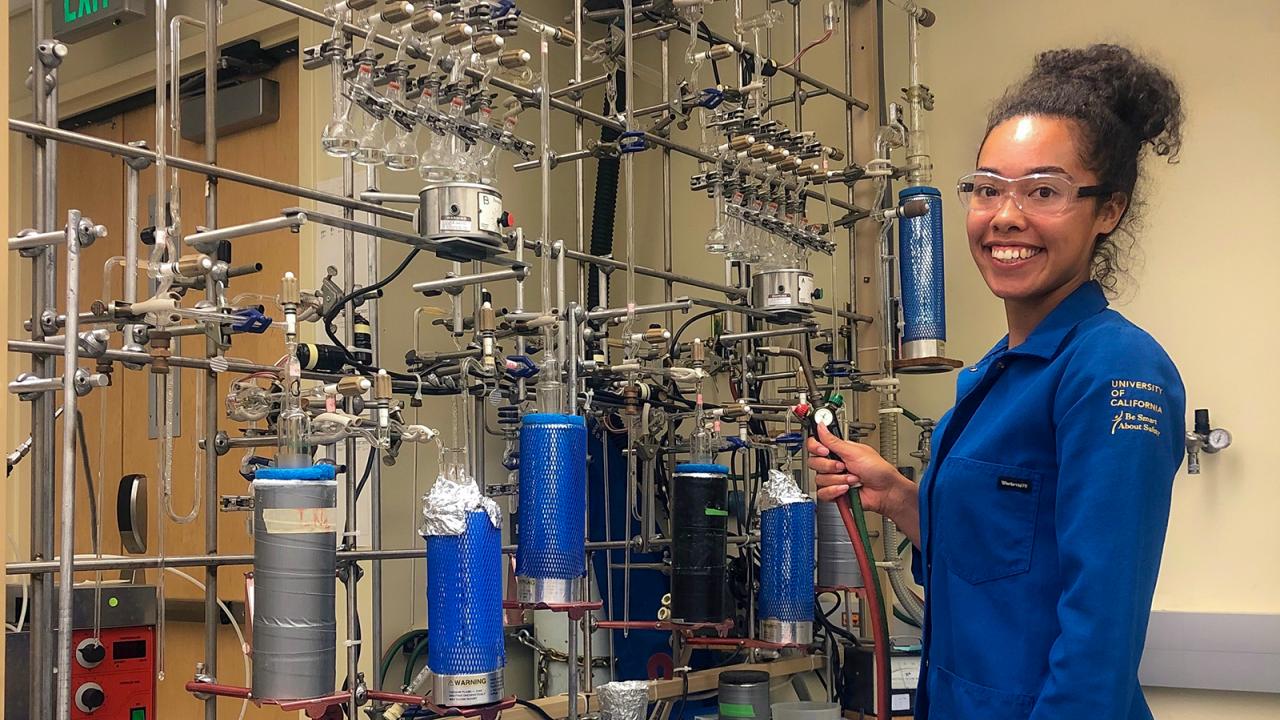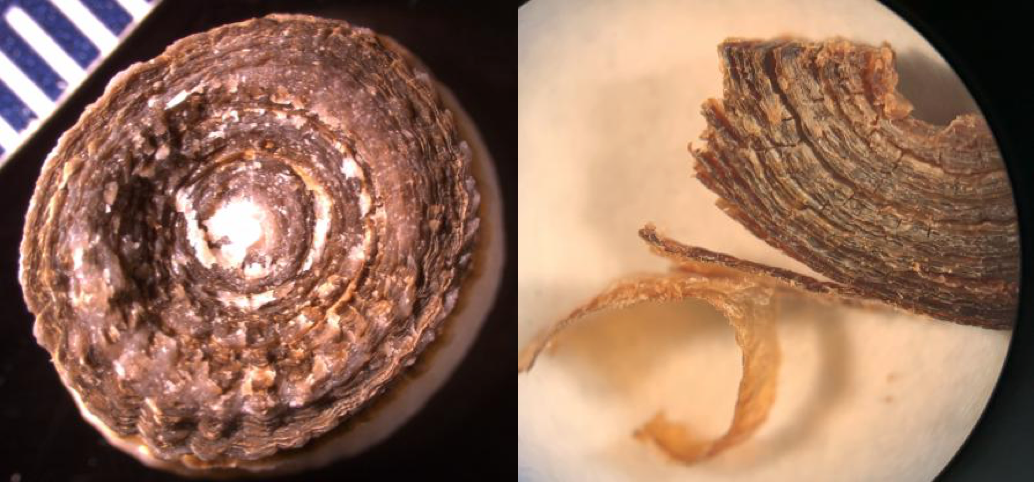
Spotlight On: Carina Fish
Exploring the Oceans
Corals are one of the most iconic images of the ocean, offering a spectacular scenery of vibrant, underwater castles for snorkelers and divers. But for marine biogeochemist Carina Fish, these vacation spots aren’t just aesthetically pleasing. Corals are biological time capsules, making them a perfect toolset for Fish to utilize as she uncovers stories about the Earth’s past.
Her career as a marine biogeochemist started in junior year of high school, when she spent a semester abroad on an island focused on place-based education, which included learning how to dive and conduct basic research. Fish consequently gained an interest in oceanography, which encouraged her to pursue a degree in the earth sciences.
As an undergrad, she, along with other students and scientists, lived on a research vessel for five weeks, dredging the Mid-Atlantic Ridge for basalts, a type of volcanic rock. After graduating, Fish helped the lab prepare the basalts for analyses.
“That’s when I first fell in love with geochemistry as a toolset,” she says. “You can learn so much about the Earth just by looking at the chemistry of the things around you.”
Fish, now finishing her fourth year as a Ph.D. candidate in Tessa Hill’s lab, is employing geochemistry to study deep-sea corals. Unlike their shallow-water cousins, these corals live in the dark depths of the ocean. “The ones that I’m working on are around 1,500 meters deep, so that’s over 16 football fields,” says Fish.
Unlocking Deep Sea Data
Since these corals live so far down without sunlight, they do not have zooxanthellae, the photosynthetic algae that provide nutrients for shallow-water corals. “Because they don’t have their plant-friends with them, they are getting all their food from things that fall down from the surface of the ocean,” Fish explains. This is known as marine snow and consists of organic particles from dead organisms including plankton.
The ‘snow’ is incorporated into the organic part, or node, of the coral’s skeleton in layers. Over time, these layers build up, forming growth layers like an onion, where the outer layers are younger or more recently created than the inner ones.
“I peel individual layers of the organic node and have these individual onion peels, or coral peels rather,” she says. “I can then run isotopic analyses on these layers, particularly for carbon and nitrogen isotopes.”
These isotopes, or variants of a chemical element, can tell Fish a number of things: the age of the coral; how biological productivity at the surface, or the amount of biomass raining down, has changed; and what organisms were present in the past. “It’s pretty powerful, all of the stuff we can extrapolate from the isotopes,” says Fish. “And that’s what I focus on.”

She can further use deep-sea corals to monitor how benthic environments are responding long-term to changes at the surface. “The corals record in their skeletons what’s going on at the surface through their diet,” explains Fish. “They’re eating mostly bits of dead zooplankton, so any changes to the plankton community at the surface is what they’re recording.”
For instance, she observed a higher proportion of gelatinous zooplankton during the 2014 to 2016 heatwave. “We may see a signal in the deep ocean from the gelatinous zooplankton being the dominant species, which should manifest as a shift in the nitrogen isotopes,” predicts Fish.
Advice for Undergrads
Her tips for undergraduates interested in research? In addition to getting in touch with professors and applying to paid research experiences like an REU, she suggests sticking with the basics.
“I’d recommend not specializing too early on in your undergrad,” advises Fish. “My classmates who stuck with math, physics, biology, chemistry, or computer science as their majors were the ones who were able to pivot most easily to any field of research that they then discovered later on.”
In other words, don’t feel pressured to find a niche. Like Fish and her corals, you may take many steps before you find a combination of toolsets and interests that align.
